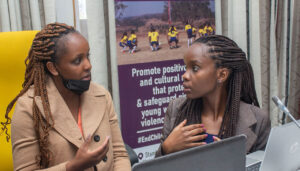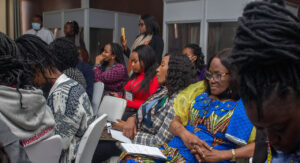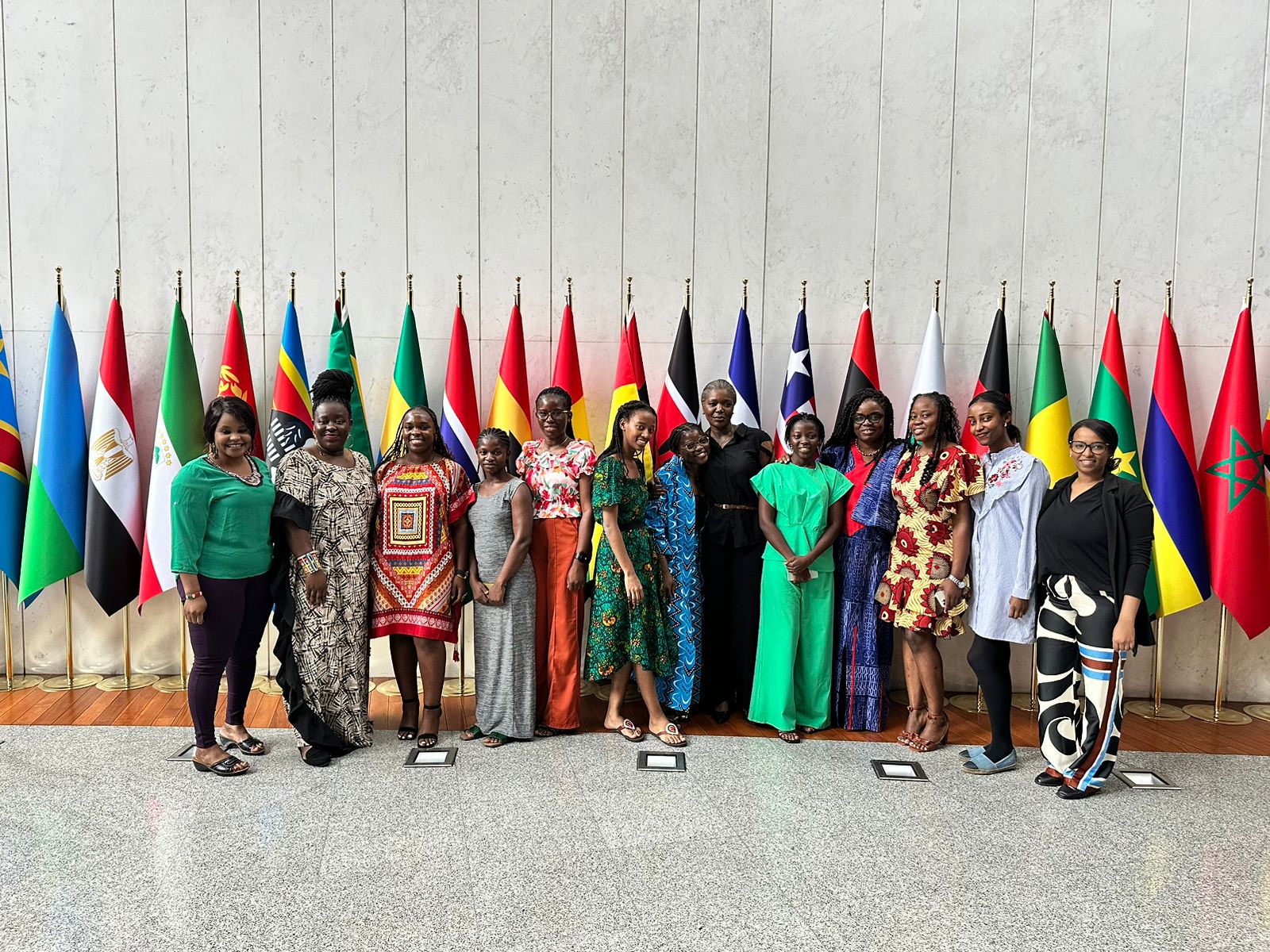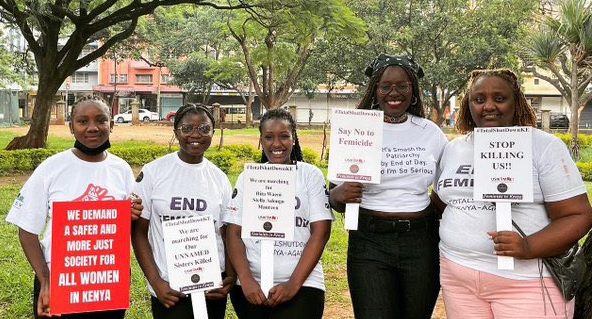
African Girls and Young Women Speak Out During the 4th GIMAC Strategic Engagement with AU, RECs
FEMNET in collaboration with over 100 African SHEroes was at the 4th GIMAC Strategic Engagement in Lusaka Zambia to amplify the voices of girls and young women and reclaim power. The session theme: Advancing Women’s Access to Economic Resources to Build Our Continent’s Resilience in Nutrition was pegged on the Aspiration (1) of Agenda 2063 which seeks to attain a prosperous Africa, based on inclusive growth and sustainable development. The discussions, thus, focused on taking stock of the achievements of the continent, outlining the ensuing challenges, and tabling inclusive proposals on how the AU, regional economic communities (RECs), and other key stakeholders should, in their collective capacities, guarantee the realization of the initiatives.
A catalogue of discussions ranging from economic and climate justice, sexual and reproductive health and rights, and the urgency for progressive and transformational leadership in Africa centred the presentations and conversations. Of key concern was the implementation of the revised Maputo Plan of Action (MPoA) for the Operationalization of the Sexual and Reproductive Health and Rights (SRHR) Continental Policy Framework. Whereas the AU commits to ending violence aagainst women and girls as one of the human rights violations that hinder women’s realization of their fundamental rights including the rights to life, human dignity, peace, justice, and socio-economic and political development, statistics show persistent gaps in investments and implementing existing policies and frameworks.

In Africa, the most prevalent forms of Violence Against Women and Girls (VAWG) reported and documented, include, among others, Intimate Partner Violence (IPV), which manifests in physical, sexual, or psychological violence by an intimate partner; Female Genital Mutilation (FGM), which is a persistent cultural practice in several African countries; Early Child and Forced Marriage where girls below 18 years are forced into marriage; as well as Sexual Violence in Conflict (SVC) which includes rape, sexual assault with violent physical assault, kidnapping, sexual slavery and forced prostitution in conflict situations. The continuity of these violations undermines progress in implementing any commitments in the MPOA and it is for this reason that civil society and women’s rights organizations must remain vigilant to monitor progress and hold AU Member States accountable to ensure women and girls lead violence-free and dignified lives.

FEMNET members and partners proactively contributed to these thematic areas while highlighting the impact of early child marriage on the continent’s economic justice agenda and social well-being. Digital conversations are curated and accessible in this social media thread and recommendations to the African Union through this link . Additionally, FEMNET as a member of the GIMAC Steering Committee will continue to work through the Network so as to expand advocacy spaces and amplify the voices of girls and young women at the regional level. GIMAC is a network of over 55 civil society organizations promoting gender equality and accountability for women’s rights in Africa. It was established during the transformation of OAU to ensure women are part of and contribute to the continental transformation process. FEMNET will continue to engage in this space to ensure that the voices, power, and solutions of African young women and girls are heard and acted upon by key decision-makers.
The aforementioned was written and compiled by Imali Ngusale i.ngusale@femnet.or.ke .For more information on FEMNET’s engagement with the GIMAC contact Imali Ngusale and Rachel Kagoiya at r.kagoiya@femnet.or.ke
Related Tags
Related Posts
African Girls and Young Women Demand Action on International Women’s Day
This International Women’s Day, a roar echoes across the halls African Union headquarters in Addis Ababa. It’s not
Learn MoreEnd Femicide NOW! African Girls & Young Women Voices Demand for Justice
A wave of youthful defiance washed over Kenya’s streets today, as girls and young women, demanded justice in
Learn More



